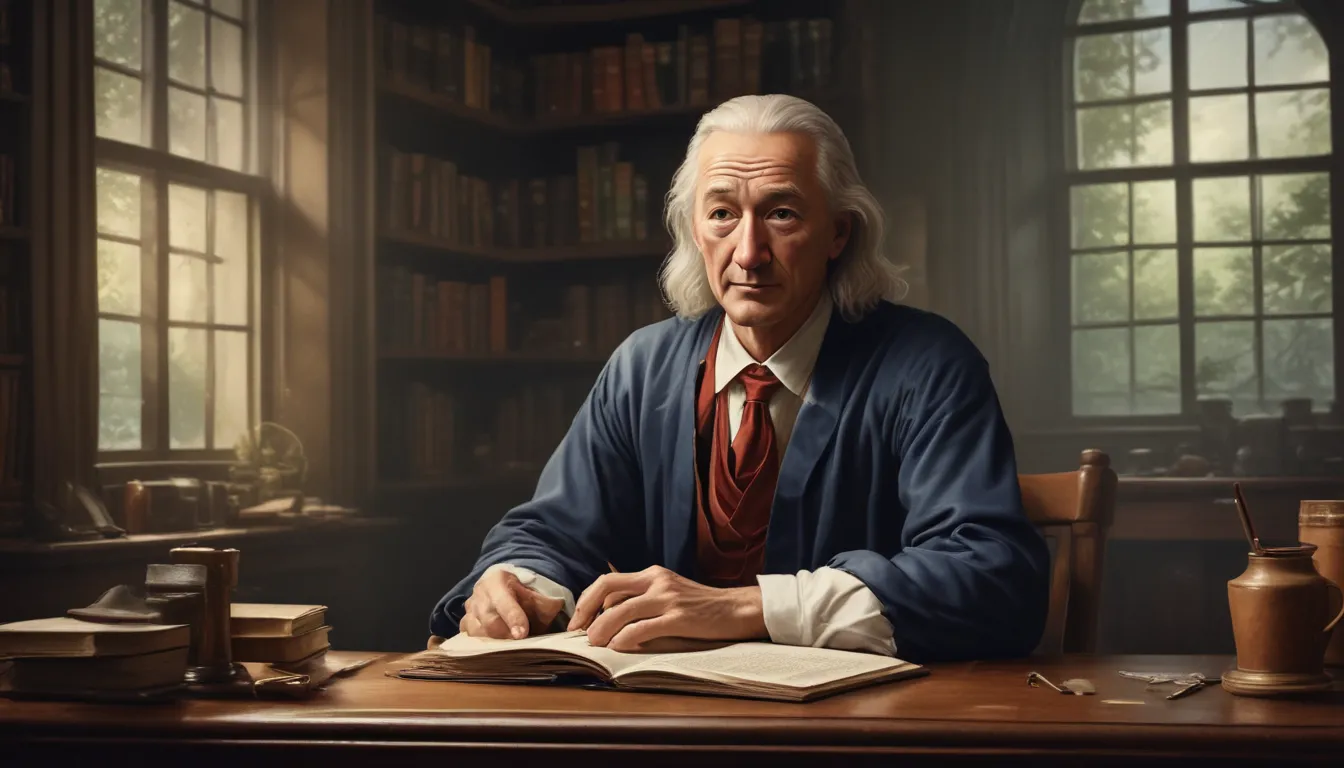The images in our articles may not match the content exactly. They are used to grab your attention, not to show the exact details in the text. The images complement the text but do not replace it.
John Locke, a prominent figure in philosophy and political thought during the 17th century, left an indelible mark on Western philosophy and the development of modern democratic societies. In this article, we will delve into 11 intriguing facts about John Locke that shed light on his life, ideas, and enduring contributions.
Early Life and Education: The Foundation of a Thinker
John Locke was born on August 29, 1632, in Wrington, Somerset, England, to a modest family. His journey into the realm of knowledge began at the Westminster School in London, where he received his early education. Later, at Christ Church, Oxford, Locke delved into a diverse array of subjects, including philosophy, science, and medicine, laying the groundwork for his future intellectual pursuits.
A Medical Career and Friendship with Lord Ashley: A Fortuitous Connection
Following his studies, Locke embarked on a career in medicine and became the personal physician to Lord Ashley, later known as the Earl of Shaftesbury. This relationship blossomed into a close friendship, with Lord Ashley serving as a powerful patron of Locke’s endeavors in the realm of ideas.
Epistemology: Tabula Rasa and the Blank Slate of the Mind
One of Locke’s most significant contributions to philosophy is his theory of epistemology, centered around the concept of “tabula rasa.” According to Locke, the mind is a blank slate at birth, with all knowledge emanating from experience. This revolutionary idea challenged the prevailing belief in innate knowledge and laid the foundation for empiricism.
The Enlightening “Two Treatises of Government”: Advocating for Natural Rights
Locke’s seminal work, “Two Treatises of Government,” published in 1689, advocated for the natural rights of individuals, including life, liberty, and property. He also championed the principles of limited government and the consent of the governed, concepts that would shape the trajectory of democratic societies.
Influencing the Founding Fathers: A Transatlantic Intellectual Legacy
Locke’s ideas resonated across the Atlantic and profoundly influenced the founding fathers of the United States. Concepts such as natural rights, limited government, and the social contract, prevalent in the Declaration of Independence and the U.S. Constitution, bear the indelible imprint of Locke’s philosophical musings.
Championing Religious Tolerance: The Legacy of Secularism
A proponent of religious tolerance, Locke ardently advocated for the separation of church and state, asserting the individual’s right to practice their religion free from governmental interference. His advocacy laid the foundation for religious freedom and the principle of secularism in modern societies.
Shaping Education: The Pedagogical Paradigm of Locke
Locke’s influence extended into the realm of education, as evidenced in his work “Some Thoughts Concerning Education.” Emphasizing the significance of early childhood education and the pivotal role of parents in fostering the moral and intellectual development of children, Locke’s ideas laid the groundwork for modern theories of child-rearing and pedagogy.
Intellectual Exchange with Isaac Newton: Fostering Scientific Advancements
Locke engaged in a stimulating correspondence with the esteemed scientist Sir Isaac Newton, exchanging ideas on optics, physics, and the nature of matter. This intellectual exchange between two luminaries contributed to the advancement of scientific knowledge during the Enlightenment period.
The Essence of Human Understanding: Unveiling the Nature of Knowledge
In his work “An Essay Concerning Human Understanding,” Locke delved into the nature of human knowledge and the limits of understanding. He posited that knowledge stems from sensory experience, with ideas serving as the building blocks of understanding. This work solidified Locke’s position as a leading figure in empiricism.
Ideals of the Enlightenment: Locke’s Enduring Influence
Locke’s ideas resonated deeply with the ideals of the Enlightenment, emphasizing reason, individualism, and progress. His advocacy for individual rights, limited government, and the pursuit of knowledge aligned seamlessly with the intellectual ethos of the Enlightenment, shaping the prevailing intellectual climate of the era.
Legacy and Enduring Influence: The Enduring Footprint of Locke’s Ideas
John Locke’s ideas and writings continue to reverberate through philosophy, politics, and the development of democratic societies. His belief in natural rights, limited government, religious tolerance, and empiricism remains pivotal in our understanding of human rights, governance, and the pursuit of knowledge. Locke’s enduring contributions to the Enlightenment solidify his status as a monumental figure in the annals of intellectual history.
Conclusion: Reflecting on Locke’s Enduring Significance
John Locke’s legacy persists as a beacon of enlightenment, illuminating our understanding of human rights, government, and knowledge. By exploring these 11 fascinating facts about John Locke, we unravel the layers of his life, ideas, and lasting influence on Western civilization.
Frequently Asked Questions (FAQs): Unveiling Insights into Locke’s Legacy
Was John Locke a philosopher?
Yes, John Locke was a prominent philosopher and political theorist during the 17th century, with his ideas leaving an indelible mark on Western philosophy.
What were John Locke’s main ideas?
John Locke’s main ideas encompassed the concept of tabula rasa, natural rights, the social contract, limited government, religious tolerance, and empiricism.
What is John Locke’s theory of tabula rasa?
John Locke’s theory of tabula rasa postulates that the mind is a blank slate at birth, with knowledge derived from sensory experience, challenging the notion of innate knowledge.
How did John Locke influence the United States?
John Locke’s ideas profoundly influenced the founding fathers of the United States, with concepts such as natural rights, limited government, and the social contract embedded in foundational documents like the Declaration of Independence and the U.S. Constitution.
What is John Locke’s legacy?
John Locke’s enduring legacy lies in his profound impact on philosophy, politics, and the evolution of democratic societies, shaping our understanding of human rights, governance, and the pursuit of knowledge.
At the core of our commitment to delivering engaging and trustworthy content lies a dedication to quality and authenticity. Each fact on our site is contributed by real users, enriching our platform with diverse insights and information. Our rigorous editorial process ensures the accuracy and reliability of the facts we share, affirming our dedication to delivering credible and captivating content. Explore, learn, and trust in our unwavering commitment to excellence.






